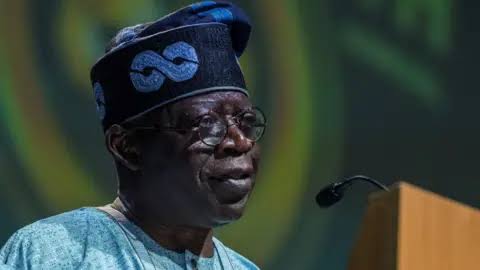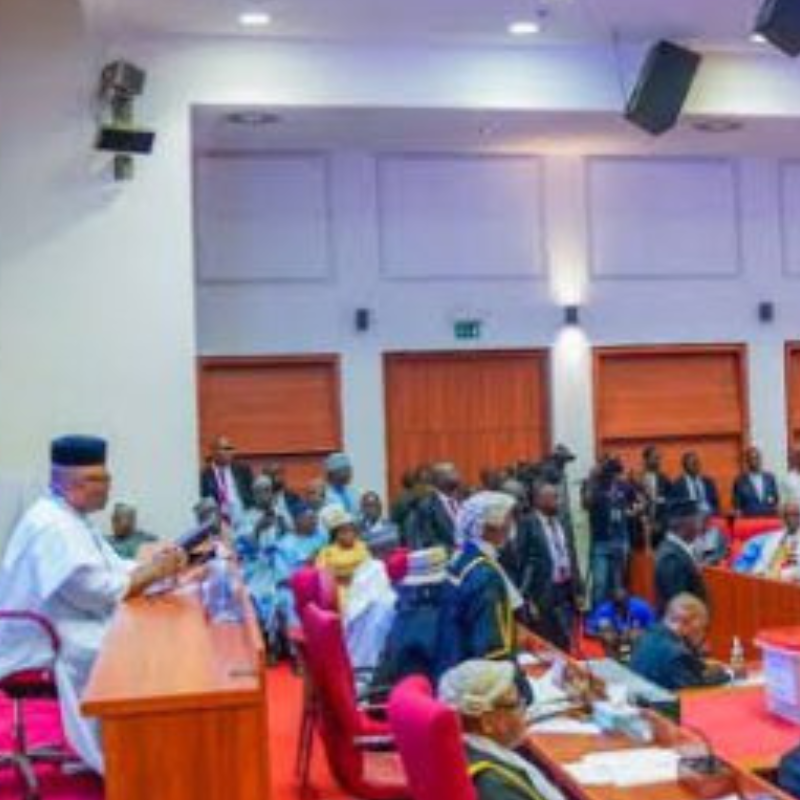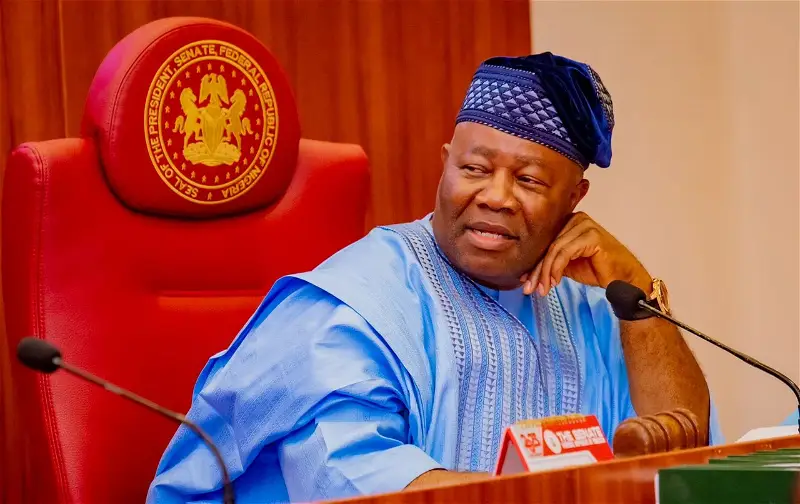Tinubu listed key figures in the pro-democracy struggle, including civil rights activists, journalists, and politicians who were either jailed, exiled, tortured or killed.

President Bola Tinubu has declared that democracy in Nigeria has “risen from the ashes” since the country’s return to civilian rule in 1999.
Addressing a joint sitting of the national assembly to commemorate Democracy Day on Thursday, 12 June 2025, Tinubu paid tribute to both well-known and unsung heroes of Nigeria’s democratic struggle, urging unity between the executive and legislature in the service of the Nigerian people.
The president’s speech was delivered in honour of Democracy Day, now officially marked every 12 June since 2018 when former President Muhammadu Buhari re-designated the date to acknowledge the June 12, 1993 elections widely regarded as the freest and fairest in Nigeria’s history.
“Since 2018, we have celebrated Democracy Day on this day to commemorate the sacrifices of the men and women who fought to restore democratic governance to Nigeria,” Tinubu said.
He praised former President Buhari for correcting a historical wrong by recognising Chief Moshood Kashimawo Olawale Abiola and his running mate, Babagana Kingibe, as the actual winners of the 1993 presidential election annulled by the military regime.
“Let me pay tribute to former President Muhammadu Buhari for reaching back into history to rectify a national misdeed,” he said.
Homage to fallen heroes
While Chief MKO Abiola remains the most recognisable symbol of June 12, Tinubu emphasised that the struggle for democracy extended beyond one man. He invoked the memories of Alhaja Kudirat Abiola and Pa Alfred Rewane, both of whom were assassinated by agents of military repression during the dark years of authoritarian rule.
READ ALSO: Akpabio says national assembly not rubber stamp
Tinubu also listed other key figures in the pro-democracy struggle, including civil rights activists, journalists, and politicians who were either jailed, exiled, tortured or killed. Among the names he cited were Chief Anthony Enahoro, Chief Abraham Adesanya, Ayo Adebanjo, Chief Gani Fawehinmi, Balarabe Musa, Ganiyu Dawodu, Bagauda Kaltho, Commodore Dan Suleiman, and Commodore Ndubuisi Kanu.
“I mention these names not to exclude or degrade the profound contributions of anyone else,” he noted, “but to illustrate, through these few heroes, the universality of our pursuit of democracy.”
According to Tinubu, the democratic struggle was never limited to any ethnic or political group, but was national in character and must continue in that spirit. “The struggle was never the province of any one group or section of the country, it was pan-Nigerian in its conception and will be even more pan-Nigerian as we strive to perfect it,” he added.
Institutions and cooperation
The president celebrated the endurance of Nigeria’s democratic institutions over the years, pointing out that every peaceful election, debate, and legislative deliberation further weaves democracy into the country’s national identity.
“Year by year, election after election, every time we debate instead of battle, discuss instead of fight, and argue instead of destroy, we preserve the institutions of democracy,” Tinubu stated.
Reflecting on the symbolism of speaking from the national assembly chambers, Tinubu acknowledged the legislature as “the authors of the people’s law,” while reaffirming his duty as “their faithful implementer.”
He concluded his address with a strong appeal for inter-branch collaboration: “While we may not always agree, we must forge a way to work together because this is what democracy demands of us. I pledge myself to this cooperation and ask that you do the same for the good of our people.”




